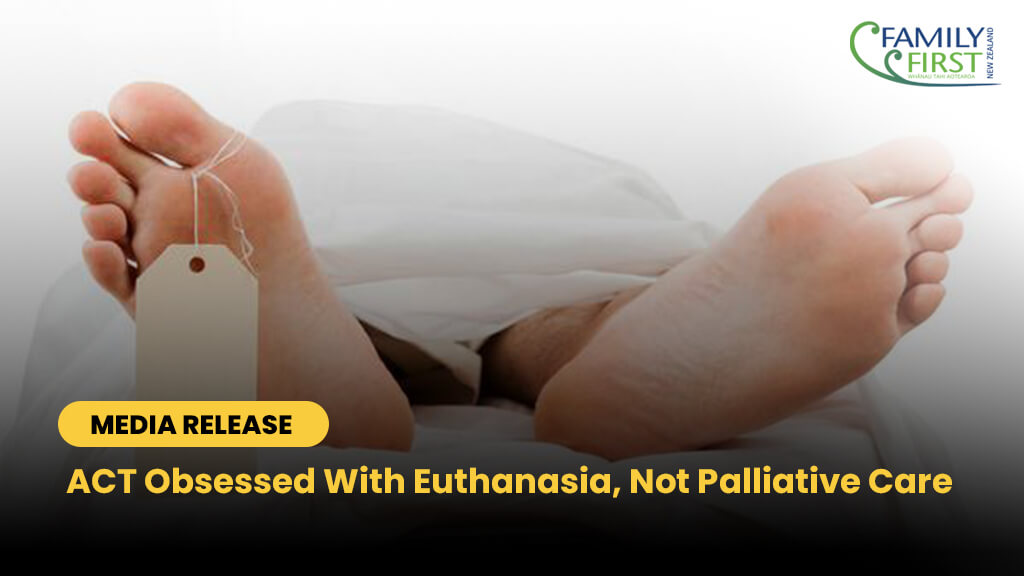
ACT’s latest attempt to broaden euthanasia and physician assisted suicide (PAS) puts even more New Zealanders at risk.

ACT’s latest attempt to broaden euthanasia and physician assisted suicide (PAS) puts even more New Zealanders at risk.

The latest review of euthanasia has just been released by the Ministry of Health – and despite a tiny workforce, there has been a continued growth in the number of those receiving assisted suicide.
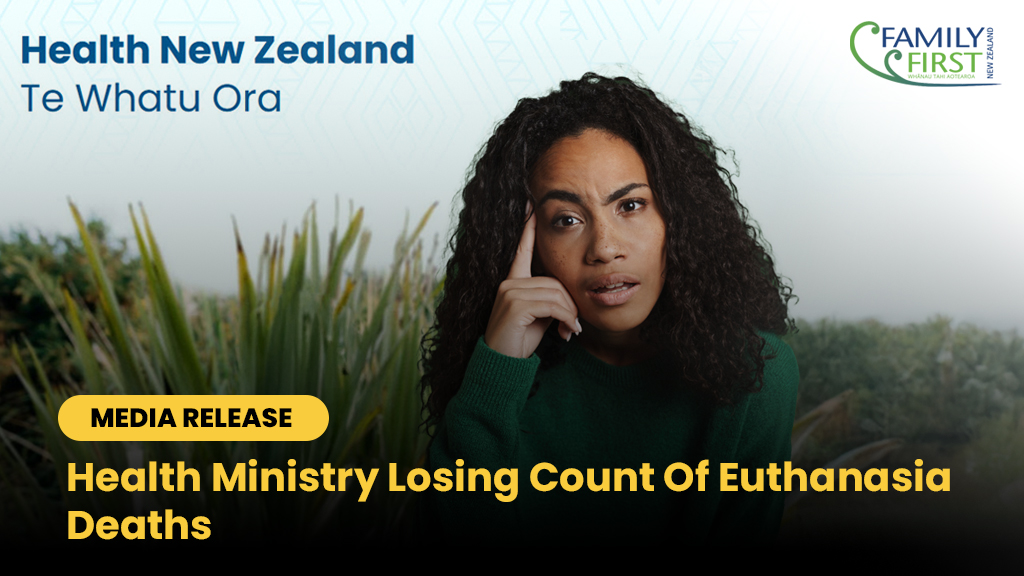
Family First is appalled to see that the Ministry of Health has once again erroneously reported euthanasia numbers in New Zealand including one quarter where the number of deaths nearly doubled.

Disturbing Data In Latest “Assisted Dying” Report
Media Release: 5 September 2024
The latest review of assisted suicide / euthanasia was quietly released last month by the Ministry of Health – but it should sound significant and loud warning bells about the law, especially at a time when proponents want it to be liberalised even further.
Family First has analysed the Registrar (assisted dying) Annual Report June 2024. Key findings include:
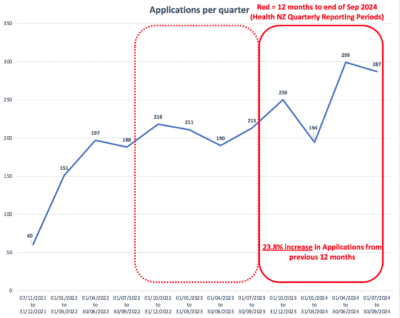
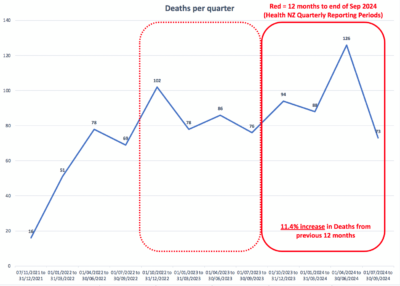
What is most disturbing is that one in four applicants weren’t receiving palliative care. The End of Life Choice Act only provides a ‘right’ to one choice – premature death. There is no corresponding right to palliative care. Good palliative care and hospice services are resource intensive; euthanasia would be cheaper. As has also been observed overseas, notably in Canada, there is a new element of ‘financial calculation’ into decisions about end-of-life care. This is harsh reality. At an individual level, the economically disadvantaged who don’t have access to better healthcare could feel pressured to end their lives because of the cost factor or because other better choices are not available to them. Some hospitals have no specialist palliative care services at all.
The NZ Herald recently reported: “A specialist paediatric palliative care (PPC) doctor says New Zealand is falling behind other nations in its care of terminally ill children and the Government must step up to help.” And the demand for this specialist medical care will only increase significantly in the near future. Our population is ageing, and therefore the number of people requiring palliative care is forecast to increase by approximately 25% over the next 15 years and will be more than double that by 2061.
Previous Governments have made little effort to address this growing problem and to increase funding for palliative care, and essential service. Euthanasia is instead given priority and full Government funding.
The other significant red flag in the report is that just 1% of applicants had a psychiatric assessment to check for both competence to make the decision, and for any presence of coercion. 99% of applicants were not assessed for these.
That so few patients are referred raises serious questions around the competency of doctors involved in euthanasia, and also implies either key psychological signs are being ignored – or missed.
Many patients who are facing death or battling an irreversible, debilitating disease are depressed at some point. However, many people with depression who request euthanasia overseas revoke that request if their depression and pain are satisfactorily treated. If euthanasia or assisted suicide is approved, many patients who would have otherwise traversed this dark, difficult phase and gone on to find meaning in their remaining months of life will die prematurely.
The unspoken reality is also that terminally ill people are vulnerable to direct and indirect pressure from family, caregivers and medical professionals, as well as self-imposed pressure. They may come to feel euthanasia would be ‘the right thing to do’; they’ve ‘had a good innings’ and do not want to be a ‘burden’ to their nearest and dearest. It is virtually impossible to detect subtle emotional coercion, let alone overt coercion, at the best of times.
This latest data simply confirms that nothing in the law guarantees the protection required for vulnerable people facing their death, including the disabled, elderly, depressed or anxious, and those who feel themselves to be a burden or who are under financial pressure.
Family First is also deeply concerned by comments by Associate Minister of Health David Seymour who is overseeing the review of the law. He recently stated on RNZ:
“The statutory review is being the Ministry of Health right now. I believe, without pre-empting what it will say, that it will give a lot of weight to making change.”
It is deeply disturbing that a Minister would campaign and potentially unduly influence an independent review with this type of commentary.
It’s time we focused on and fully funded world-class palliative care – and not a lethal injection.
We can live without euthanasia.
DOWNLOAD OUR FACT SHEET ON THE LAW https://familyfirst.org.nz/wp-content/uploads/2021/06/Euthanasia-Fact-Sheet.pdf
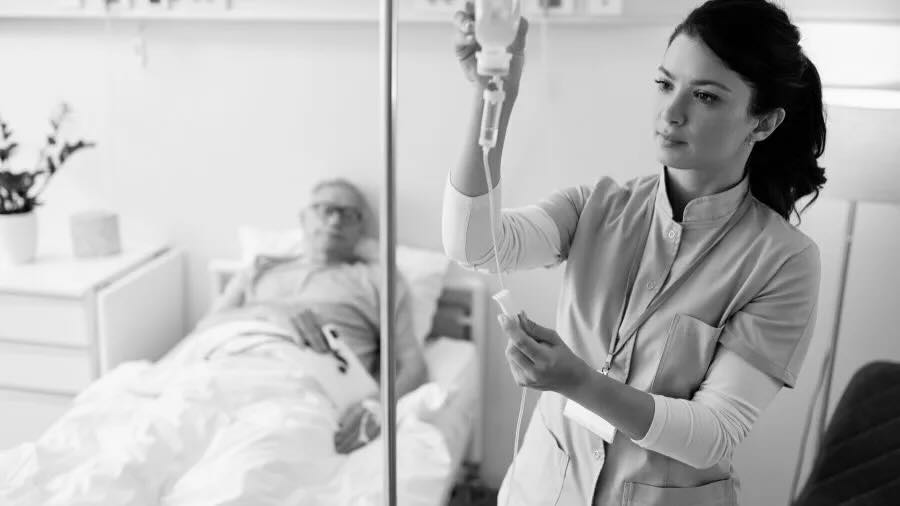
Family First NZ is welcoming the Private Members Bill from NZ First MP Tanya Unkovich – ‘Improving Access to Palliative Care Bill’ – which seeks to guarantee that every New Zealander has the right to receive high-quality and compassionate palliative care whenever it is needed.
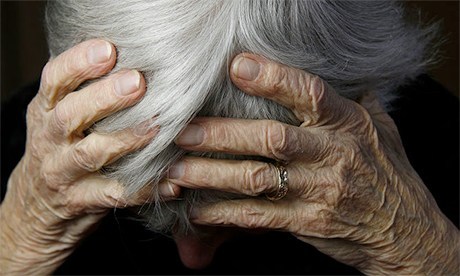
Media Release 30 October 2020
Family First NZ says that the End of Life Choice Act – a.k.a. assisted suicide law – will be a danger to both the vulnerable and society in general.
“It is one thing to say yes to a nice sounding phrase around having ‘choice’, but assisted suicide is not a simple yes no answer,” says Bob McCoskrie, National Director of Family First NZ.
“Some people will be euthanised on account of a disease they thought they had but did not. Prognosis is an uncertain procedure. Others will request assisted suicide because of coercion either internally or from relatives, or concerns around costs of treatment, and others will be struggling because of a terminal disease prognosis and actually just need appropriate support.”
“They may come to feel euthanasia would be ‘the right thing to do’; they’ve ‘had a good innings’ and do not want to be a ‘burden’ to their nearest and dearest. This law now means that vulnerable people facing a terminal illness will be asking themselves – why should I not be accessing euthanasia?”
There is also concrete evidence from those countries which have authorised euthanasia that the availability and application of euthanasia expands to situations never initially envisaged as indications for it. Netherlands has recently backed plans for euthanasia for terminally ill children under-12, is considering euthanasia being automatically available for healthy people over 75 years old, and a champion of the Dutch euthanasia system has admitted that assisted dying is a slippery slope to ‘random killing of the defenceless’. And a kiwi pro-euthanasia campaigner is already calling for an expansion of the criteria to qualify for assisted suicide.
“Nothing in this Act guarantees the protection required for vulnerable people, including the disabled, elderly, depressed or anxious, and those who feel themselves to be a burden or who are under financial pressure,” says Mr McCoskrie.
“How many euthanasia mistakes are we willing to accept? Today is a sad and dangerous day for the vulnerable.”
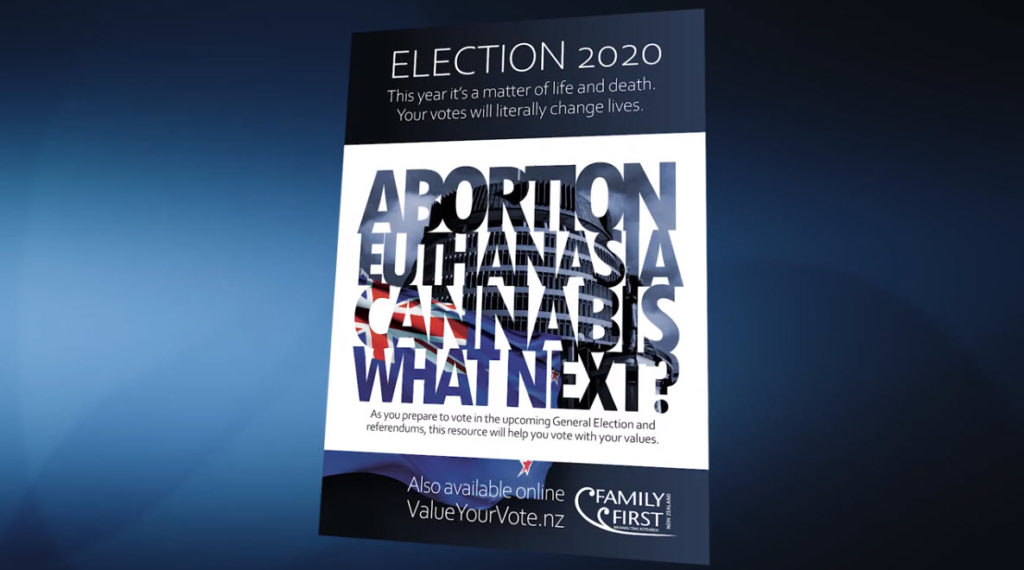
Media Release 16 July 2020
Hot off the press is our brand new resource Value Your Vote 2020. This is the fifth election where we have provided this popular voting resource for families.
The 2020 election is unique in that we not only have two votes under the MMP system, the party vote and the electorate vote, we also get another two votes: on whether euthanasia and cannabis should be legalised in New Zealand.
Your votes will literally change lives.
This brochure (and the accompanying guide on our website – ValueYourVote.nz) does two things:
1. It allows you to see how each MP, including each party leader, has voted on important social issues. Many of them are conscience votes, allowing an MP to vote according to his or her conscience rather than along party lines. However, in many cases, there seems to be a ‘party conscience’.
2. It explains the reasons why a NO-vote in both the referendum on cannabis and the referendum on euthanasia is the only option.
There is also a summary of why the new abortion law should never have been passed.
Watch the short promo below….
The resource is also available to be viewed and downloaded in Maori, Samoan, Tongan, Arabic, Korean and Chinese.
VOTING ACCORDING TO OUR VALUES IS THE GREATEST FREEDOM AND PRIVILEGE WE HAVE. WE SHOULD VALUE IT – AND USE IT!
We are pleased to aid you in making an informed decision when you vote this September.
READ THE PAMPHLET https://valueyourvote.org.nz/2020-general-election/docs/VALUE%20YOUR%20VOTE%202020%20PAMPHLET%20low%20res.pdf
OFFICIAL WEBSITE www.ValueYourVote.nz
ORDER COPIES FOR YOUR GROUP TODAY www.bit.ly/valueyourvote
https://www.familyfirst.org.nz/wp-content/uploads/2020/07/Leaders-page-with-Judith.pdf
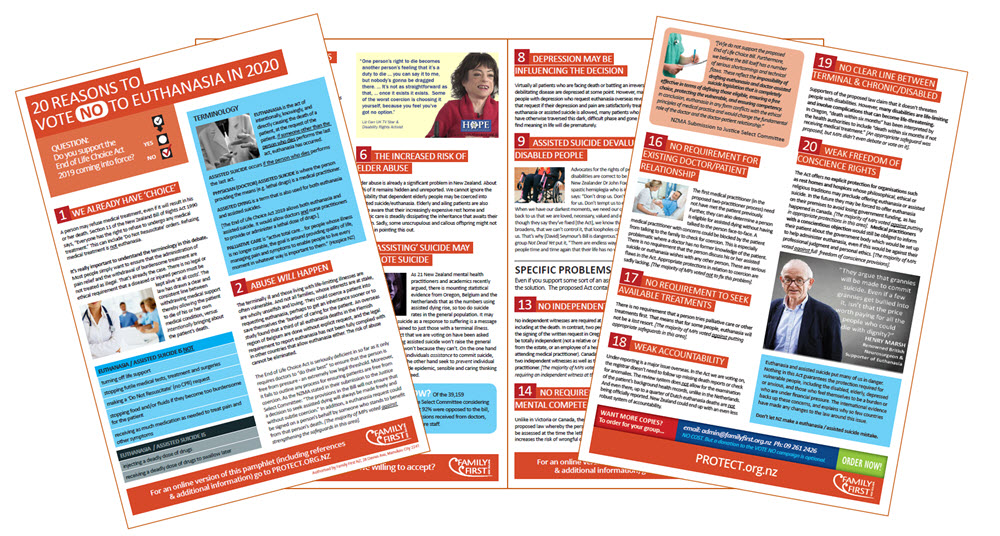
Media Release 13 May 2020
As the country prepares to vote in a referendum on whether to legalise euthanasia / assisted suicide, a new resource presents 20 reasons for New Zealanders to vote NO in the upcoming referendum.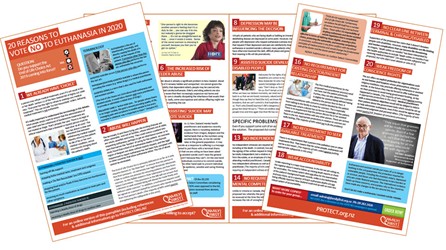
“20 Reasons to Vote NO in 2020” include:
* we already have choice
* abuse will happen
* diagnosis and prognosis can be wrong
* ‘assisting’ suicide may promote suicide
* assisted suicide devalues disabled people
* medical bodies oppose it
and many more.
There is also an analysis of the legislation which would come in to effect if the majority of New Zealanders voted yes.
The information is available as a 4-page pamphlet for free download. DOWNLOAD HERE. This resource will be distributed widely throughout the country.
“This information will help New Zealanders understand what the debate is really about. There were attempts by MPs to correct the name of the bill to ‘Euthanasia and Assisted Suicide Act 2019’, in order to truly reflect what the law change is about, and which would allow the public to understand what practices are made legal by the passing of the Bill. But this was voted down by a majority of MPs. Rather than the referendum question simply being “Do you support euthanasia & assisted suicide?” which is what the real debate is about, they have made the question “Do you support the End of Life Choice Act”,” says Bob McCoskrie, National Director of Family First NZ.
“It completely avoids the terms ‘euthanasia’ & ‘assisted suicide’, and accentuates ‘choice’ – but as is explained in the pamphlet, we already have choice. In fact, the New Zealand Medical Association (NZMA) says that euthanasia and assisted suicide are “unethical and harmful to individuals, especially vulnerable people, and society”.”
“Euthanasia and assisted suicide put many of us in danger. Nothing in the proposed law guarantees the protection required for vulnerable people, including the disabled, elderly, depressed or anxious, and those who feel themselves to be a burden or who are under financial pressure. The international evidence backs up these concerns, and explains why so few countries have made any changes to the law around this issue.”
“We will do everything we can to prevent New Zealand from making a euthanasia / assisted suicide mistake.”
ENDS
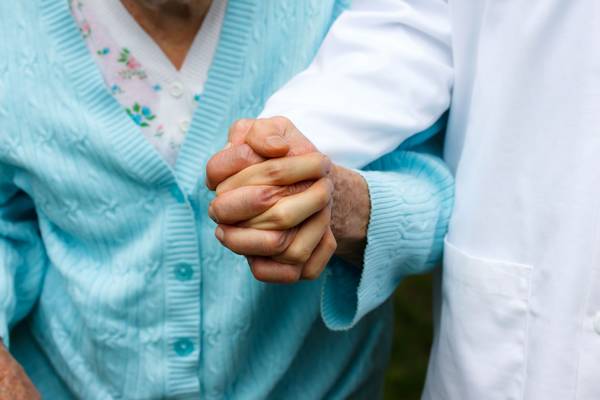
Media Release 24 October 2019
Family First NZ says that the referendum on assisted suicide will be defeated by voters once they understand the law that may be passed by politicians next month, and the impacts it will have on both the vulnerable and society in general.
“It is one thing to say yes to a nice sounding phrase around having ‘choice’, but when voters examine the pitfalls and dangers of the bill that may be passed next month, they will quickly realise that assisted suicide is not a simple yes no answer,” says Bob McCoskrie, National Director of Family First NZ.
“The Select Committee were unable to agree that the bill be passed, and they warned that the bill is not workable in its present state. Many MPs who voted for the bill in the 1st Reading said that they would be waiting for the Committee to tell them how to make the bill better and safer before supporting it further. Virtually all of the SOPs designed to improve the bill have either been defeated or have not been allowed to be debated. The bill is still a mess.”
“Even if the bill was limited to just the terminally ill, some people will be euthanised on account of a disease they thought they had but did not. Prognosis is an uncertain procedure. Many people know or have heard of a person who, having been given a pessimistic prognosis, has lived for many years to tell the tale. There is also concrete evidence from those countries which have authorised euthanasia that the availability and application of euthanasia expands to situations never initially envisaged as indications for it.”
A poll in April showed that most Kiwis balk in their support of assisted dying when questioned about specific aspects of euthanasia.
The Care Alliance analysis of the almost-39,000 submissions found that 91.8% were opposed to the Bill, but most importantly, 93.5% of submissions received from doctors, nurses and other health care staff were opposed.
“The promotion of euthanasia places large numbers of vulnerable people at risk – in particular those who are depressed, elderly, sick, disabled, those experiencing chronic illness, limited access to good medical care, and those who feel themselves to be under emotional or financial pressure to request early death,” says Mr McCoskrie.
“The details and understanding of an actual euthanasia law is the killer for support.”
ENDS

Media Release 27 June 2019
Family First NZ says that MPs have had to vote ‘blind’ on a bill labelled by the Select Committee as “not workable in its present state”.
“The assisted suicide bill has more than 100 amendments (SOPs) to be considered to try and make the bill ‘workable’. This may reassure some MPs who voted Yes in the 2nd Reading, but it is far more likely to result in many MPs withdrawing their support by the 3rd Reading,” says Bob McCoskrie, National Director of Family First NZ.
“This Bill is just as much of a mess after the Select Committee process as it was before. The Committee was given 16 months to study the bill, hear submissions, and try to fix it. They simply couldn’t, because it’s a flawed, dangerous bill.”
“This means our work has really just begun. The bill is likely to be significantly different by the time it is considered for its 3rd Reading.”
“ACT MP David Seymour’s significant backdowns on the bill last year also indicate just how weak and flawed the bill is. The backdowns are certainly in contrast to his earlier attacks, including his statements that There’s just so much scaremongering that doesn’t stand up to evidence and One of the biggest obstacles are MPs who are not in touch with their electorates…and also MPs who may have been coloured by some of the scare-mongering from the other side.”
“Even if the bill was limited to just the terminally ill, some people will be euthanised on account of a disease they thought they had but did not. Prognosis is an uncertain procedure. Many people know or have heard of a person who, having been given a pessimistic prognosis, has lived for many years to tell the tale. There will be those who decide for euthanasia on the basis of an unduly pessimistic prognosis or disability. There is also concrete evidence from those countries which have authorised euthanasia that the availability and application of euthanasia expands to situations never initially envisaged as indications for it.”
“The promotion of assisted suicide is a message that will be heard not just by those with a terminal illness but also by anyone tempted to think he or she can no longer cope with their suffering – whatever the nature of that suffering. This is the real risk to young and to vulnerable people, the disabled and the elderly people if NZ follows the path of promoting – and allowing – assisted suicide.”
ENDS